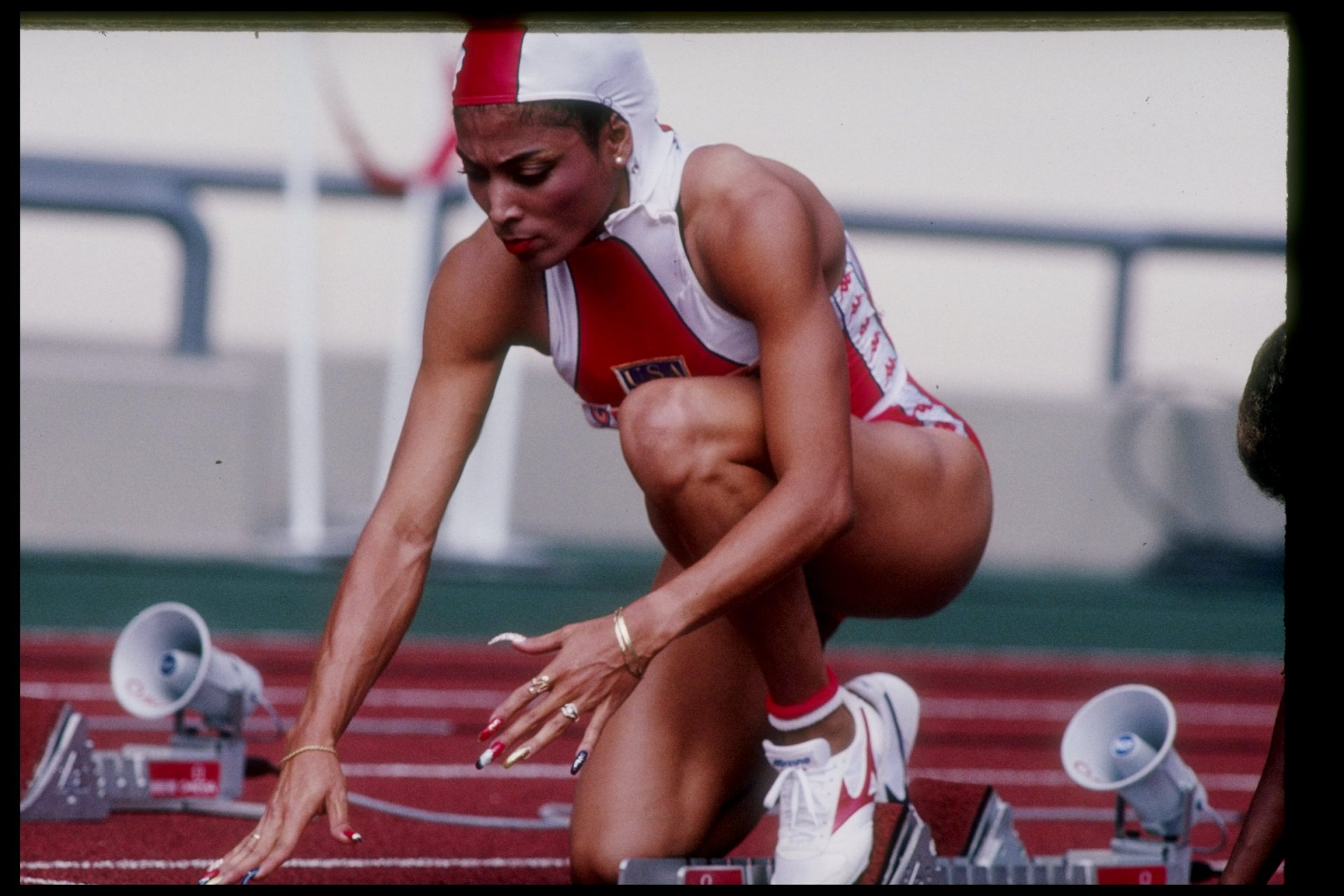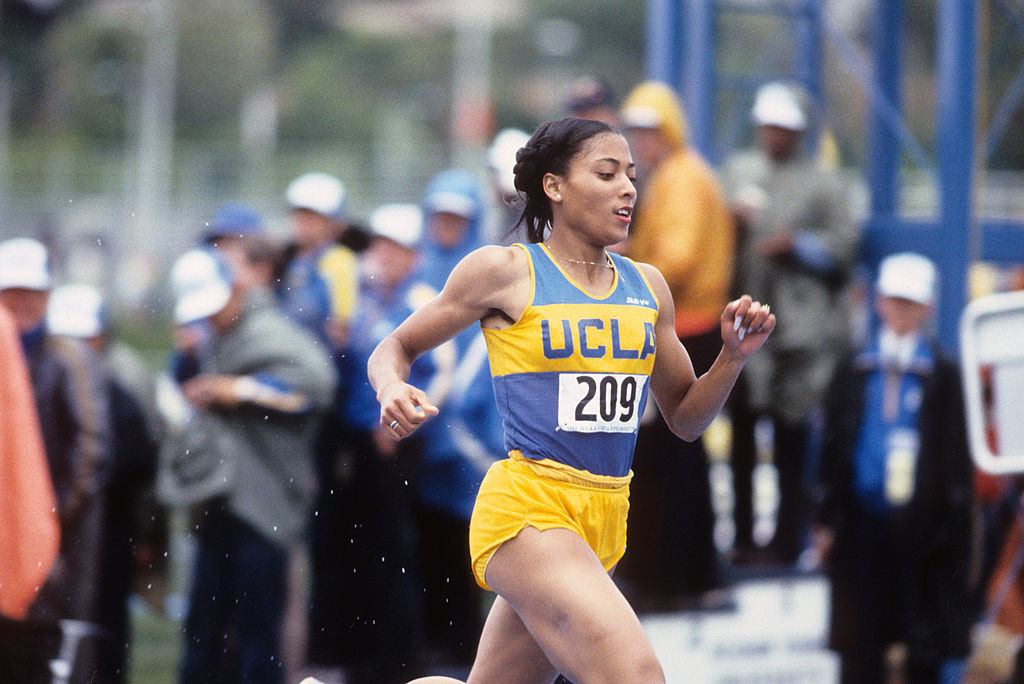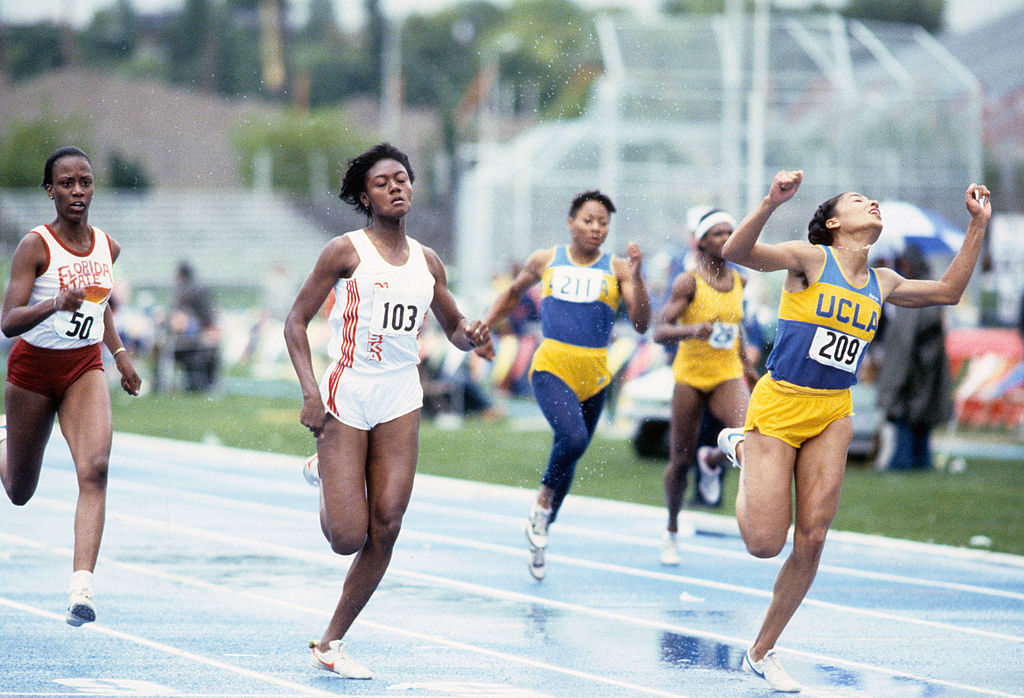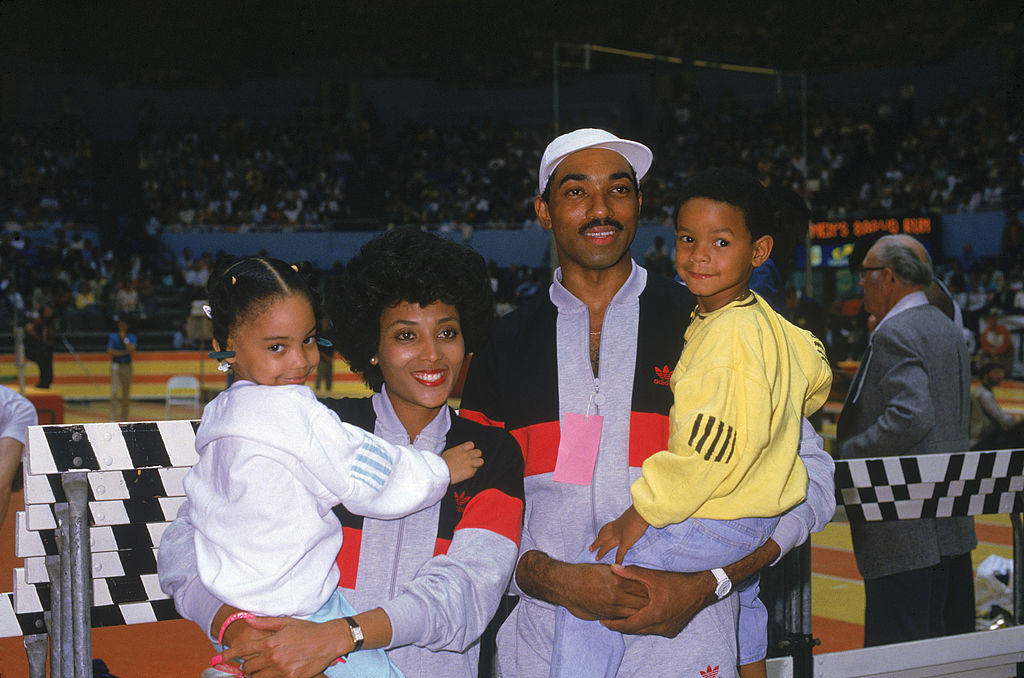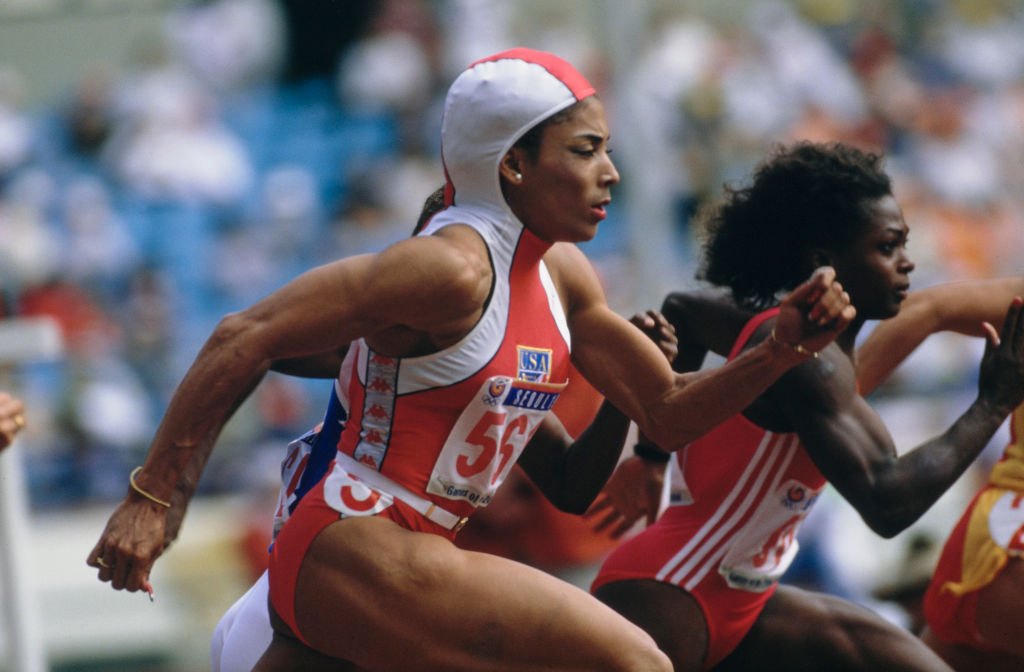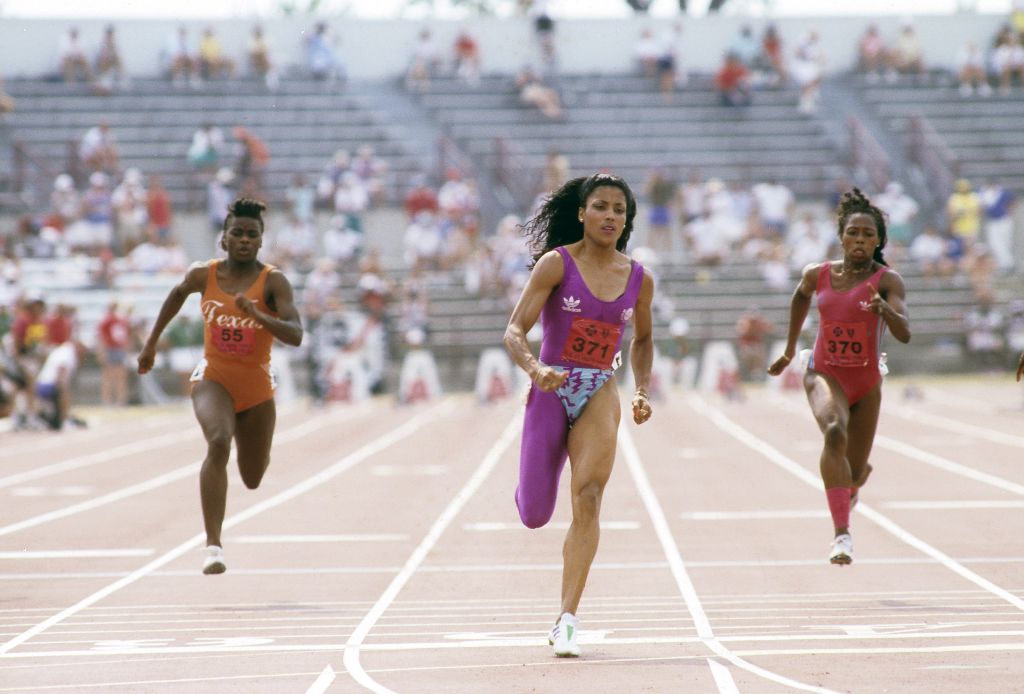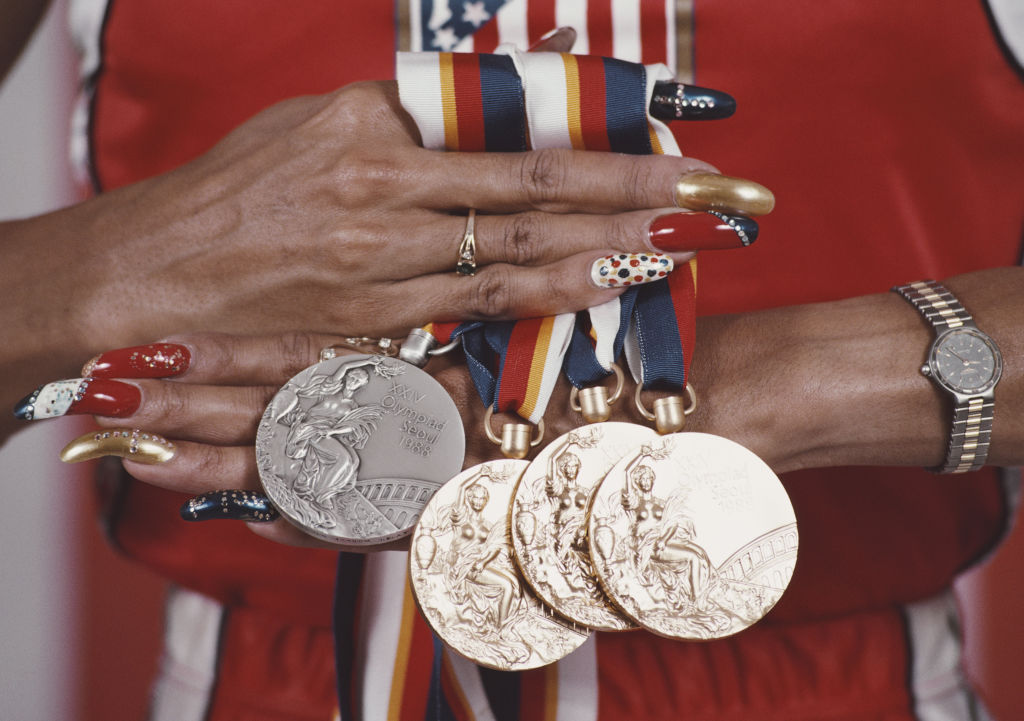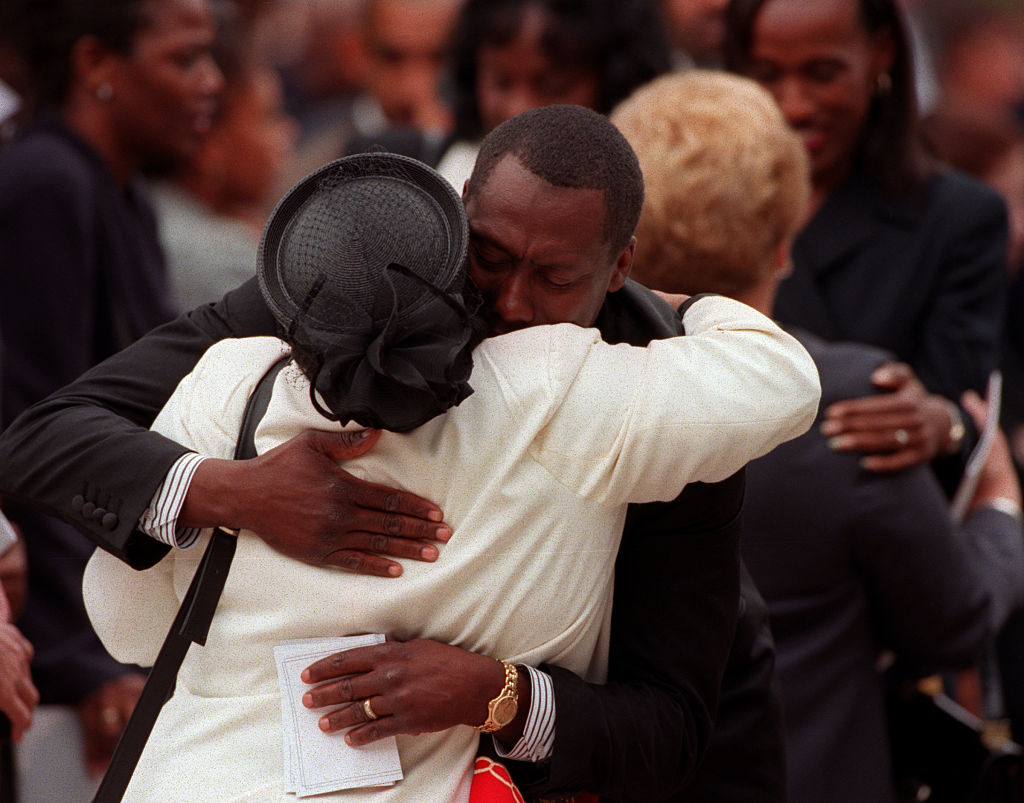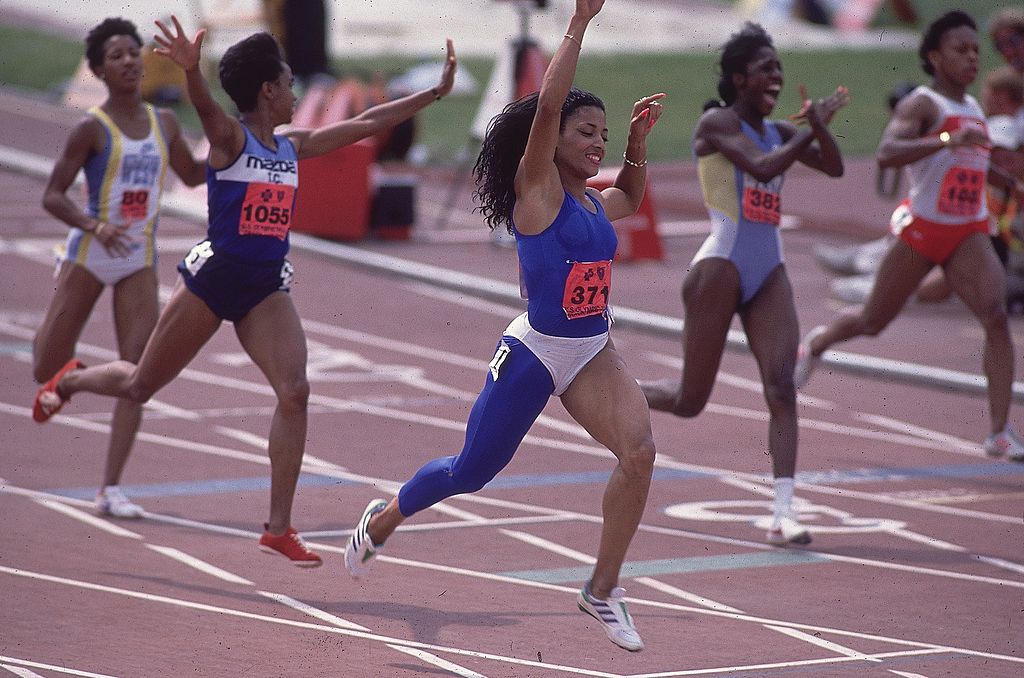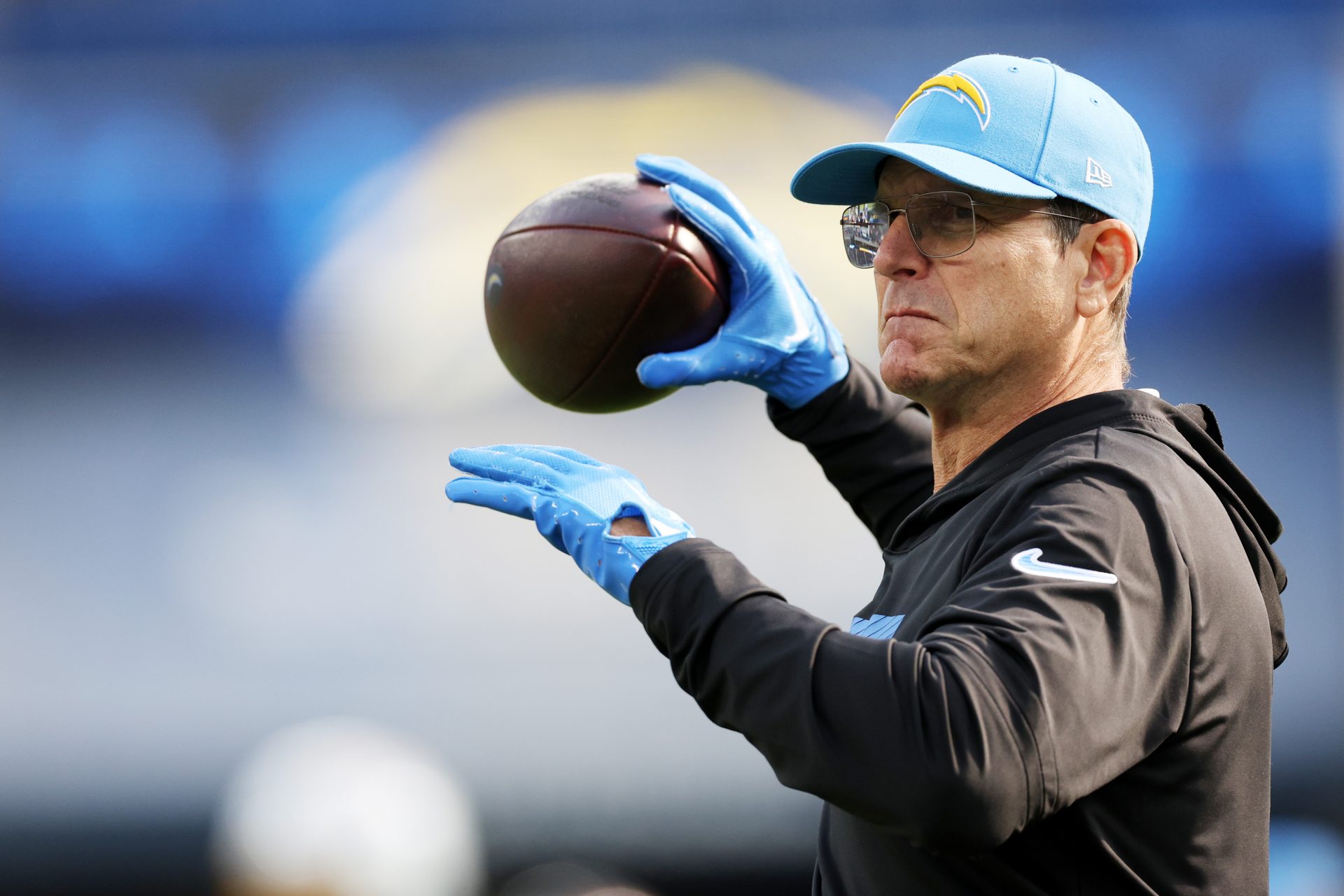The tragic story of Florence Griffith Joyner, the controversial 100 meter record holder
In history, certain records are difficult to beat. Chief among them are Florence Griffith Joyner's titles; the American sprinter, affectionately known as 'Flo Jo', has held the 100 and 200 meter records since 1988!
10.49 seconds on the 100m main event and 21.34 on the 200 meters – two times which have never been approached since. It must be said that there is a reason for this: the American's results are extremely questionable.
Indeed, the sprinter experienced an extraordinary physical transformation in a few years and unfortunately died at the age of 38. A death that is most likely linked to the abuse of performance-enhancing drugs. Let's take a look back at Griffith Joyner's journey and how she became the most controversial sprinter in history.
Want to see more like this? Follow us here for daily sports news, profiles and analysis!
Florence Griffith Joyner was born on December 21, 1959 in Los Angeles. She was the seventh child in a family of 11 and grew up in poverty. Her mother raised all her children alone following her divorce from Florence's father.
From the age of six, she joined an athletics club and showed exceptional abilities. In 1973, at age 13, she won the Jesse Owens National Youth Games. The prodigy progressed further and was accepted to a university in California at Northridge.
Unfortunately, in 1979, she had to stop studying and playing sports to help her mother financially. She found work as a teller in a bank, a job she seemed destined to stay in until prestigious coach Bob Kersee spotted her and invited her to join UCLA in the early 1980s.
There, she completed her bachelor's degree in psychology in 1983 and trained more than ever. She won the 200 meters at the NCAA (university) championships in 1982 and the 400 meters the following year, as recounted by Women's Running magazine.
The sprinter qualified for the Helsinki World Championships in 1983 and participated in her first world championships. She finished fourth in the 200 meters in 22.46 s. The athlete's progress was remarkable, and in 1983 she took the silver medal at the Olympic Games in Los Angeles in 22.04 s, as documented by the Olympics website.
While she was on an excellent path, she decided to retire from the sport in 1985, at the age of 25, to work in a bank once again, as reported by the Los Angeles Times in 1988. She was engaged and had her sights on a settled family life.
It was ultimately Bob Kersee who managed to re-motivate her and put her through very physical training, based on bodybuilding. She placed second at the World Championships in Rome and decided to change coaches and increase the weight training load.
Want to see more like this? Follow us here for daily sports news, profiles and analysis!
On July 16, 1988, she participated in the American trials for the 100 meters, a distance in which she was not a specialist. However, in front of a stunned audience, she smashed the world record by 26 hundredths, during the quarter-finals, in 10.49 s, as documented by the Olympics' official website.
Physically, Flo Jo was transformed. She gained an impressive amount of muscle in just six months. The world of sport was shocked and had some serious questions about the American's performances.
She arrived as the favorite at the Seoul Olympic Games in 1988, where she crushed the competition over 100 meters, with a lightning acceleration at the halfway mark. She won the gold medal with a time of 10.54 s.
In the 200 meters, she broke the world record in the semi, then in the final (21.34 s). All in less than two hours. She also won the 4x100 meter relay and finished second in the 4x400 meter.
In 1989, she retired while at the peak of her career. She then decided to devote herself to fashion while also working as an advisor to Bill Clinton in physical education.
Just a few years later, Flo Jo started suffering serious health problems. In April 1996, she suffered a cardiac arrest. On September 21, 1998 she was found dead following an epileptic seizure, at the age of 38.
Want to see more like this? Follow us here for daily sports news, profiles and analysis!
Her death reinforced the strong suspicions of doping around the athlete. Additionally, sprinter Darrell Robinson (pictured) claims to have sold growth hormones to Griffith Joyner in 1988 for $2,000, as reported by The New York Times.
Although she never tested positive, the American experienced almost unachievable progress, both physically and in terms of her performances, where she gained .5secs over 100 meters in less than a year. Additionally, unannounced doping tests were instituted in 1989 – the year she retired.
As a result of the renewed interest in her alleged doping, which saw IOC medical commission president Prince Alexandre de Merode released a statement about Griffith Joyner following her death. He stated: "We performed all possible and imaginable analyses on her. We never found anything. There should not be the slightest suspicion."
However, the latter was accused of covering up drug tests at the 1984 Games and in the 1990s with Chinese swimmers.
Florence Griffith Joyner was a meteorite that fell on the world of athletics in 1988, before disappearing immediately. A star that shone brightly for a few months before going out. Though she leaves behind a controversial legacy, her record may stand the test of time.
Want to see more like this? Follow us here for daily sports news, profiles and analysis!
More for you
Top Stories





